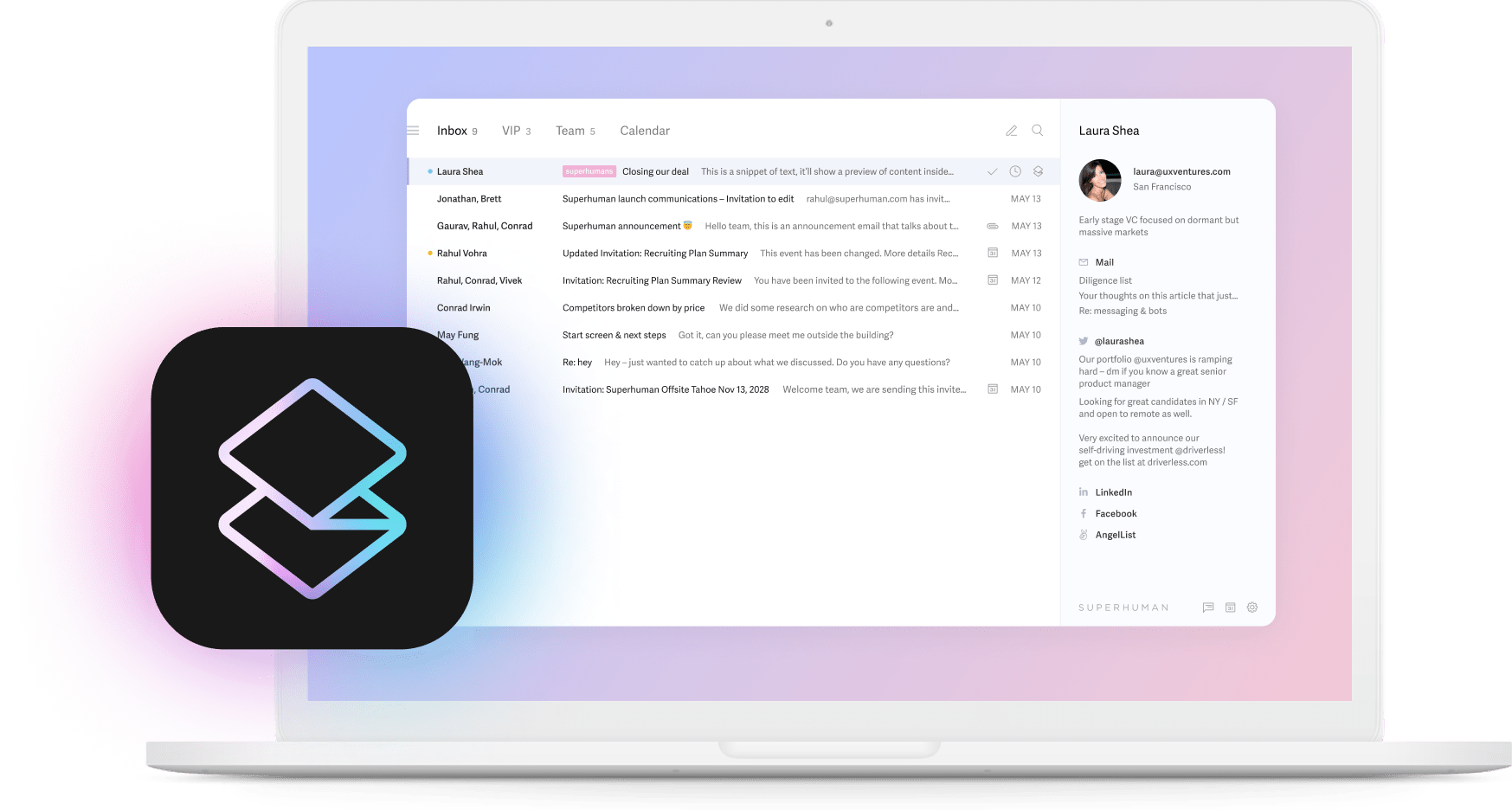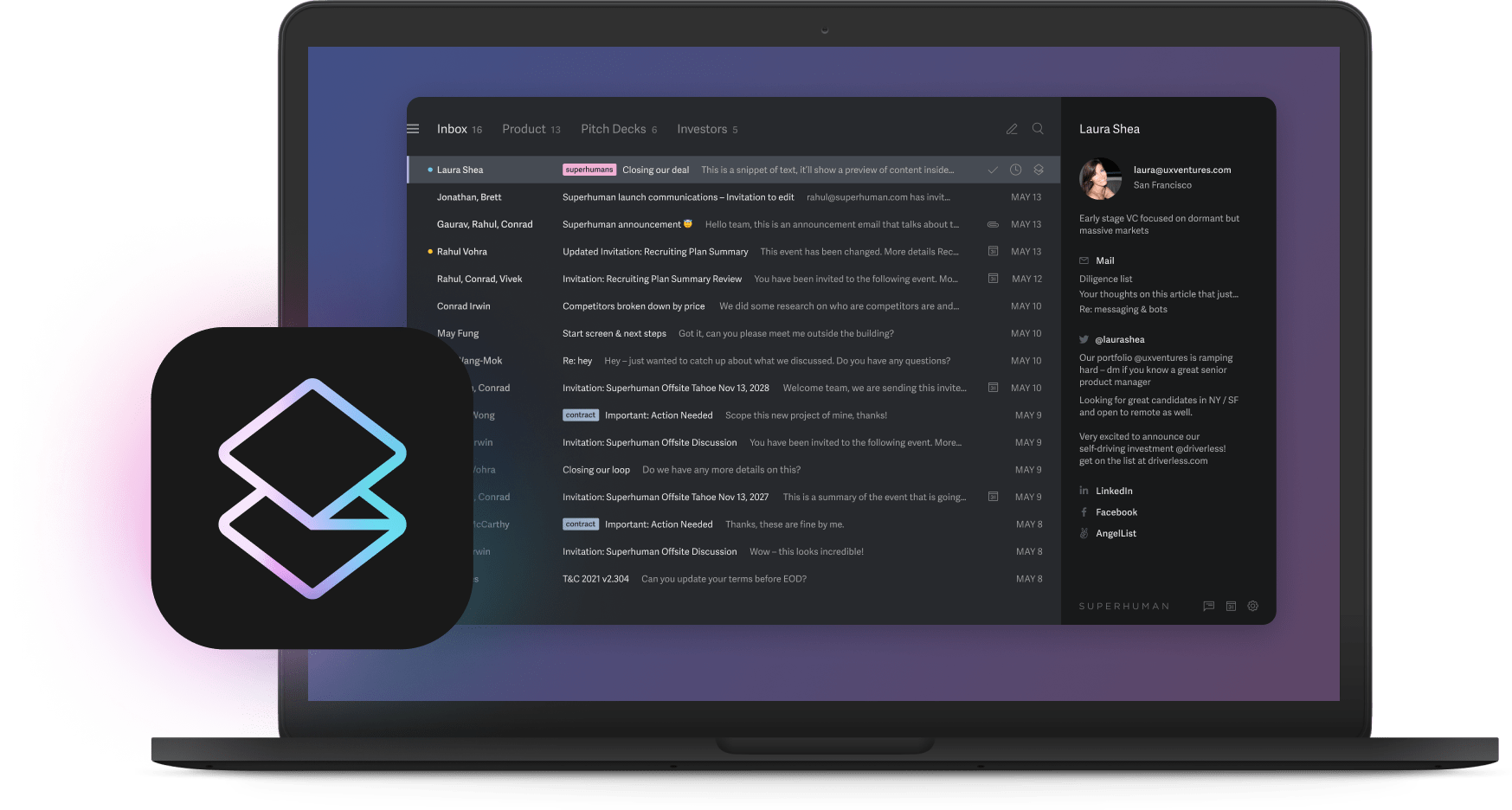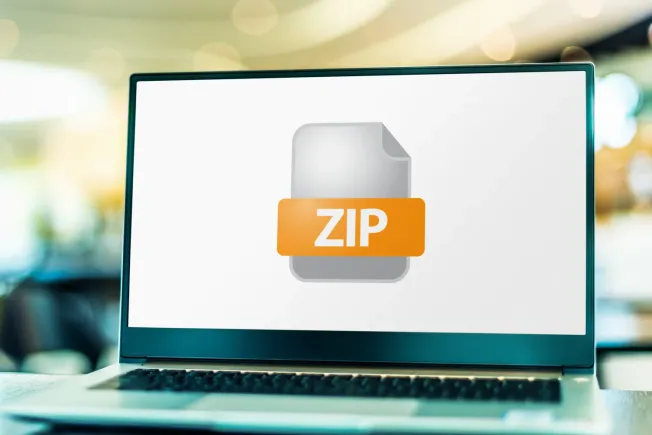
Forget robots taking over the world (for now). The real AI revolution is happening in your office, your favorite stores, and even your bank account — and it's way cooler than you think. Buckle up, because the future isn't coming, it's already here, and it's powered by some seriously smart tech you won't want to miss.
Read on to learn about some of the most interesting and powerful AI use cases in business today.
1. Virtual assistant integration (Bank of America's Erica)
Need to check your account balance at 2 AM? Bank of America's virtual assistant Erica handles customer inquiries and provides financial advice around the clock. No waiting for business hours, no hold music — just instant answers when you need them.
This AI buddy delivers personalized financial guidance without banks needing to staff call centers 24/7. Human representatives can focus on the complex conversations that truly benefit from a personal touch, while routine questions get answered instantly.
Banks using these AI assistants see happier customers who feel heard and helped. The technology meets our growing expectation for instant service (because who wants to wait anymore?), helping traditional banks keep pace with digital challengers.
Beyond just answering questions, these AI assistants quietly gather insights about what customers really need. This treasure trove of conversation data helps banks create better products and reach out with the right guidance at the right time.
2. Intelligent supply chain management (Coca-Cola)
Coca-Cola is making sure their products never disappear from shelves by using AI to automate supply chain decisions. Their systems predict exactly what stores will need before they run out, making sure your favorite drinks are always in stock.
This smart approach cuts operational costs dramatically while reducing waste from overstocked products. The AI doesn't just look at past orders — it analyzes weather forecasts, upcoming events, and even social media trends to predict what consumers will want next week.
When unexpected disruptions hit (like pandemics or shipping blockages), these systems quickly find alternative solutions. While competitors scramble to reroute supplies manually, AI-equipped companies already have Plan B, C, and D ready to go.
The result? Fresher products on shelves, fewer emergency shipments, happier retailers, and consumers who can always find what they're looking for — a win for everyone in the supply chain.
3. Smart recommendation engines (Amazon)
Ever wonder how Amazon seems to read your mind? Their recommendation engines analyze your browsing history and past purchases to suggest items you might love but didn't know existed. This technology increases sales volume while making shopping feel personally tailored to your interests.
These systems eliminate the overwhelm of endless browsing by creating a shorter path to products you'll actually want. Instead of scrolling through thousands of options, you see the handful most likely to catch your eye — saving both your time and sanity.
For Amazon, the magic happens when recommendations lead to those unplanned purchases we all make. "I came for printer paper but ended up with wireless earbuds and a new cookbook" is the direct result of smart AI understanding what might tempt you based on your past behavior.
What looks like helpful suggestions to shoppers translates into substantial revenue growth for retailers, creating a rare win-win where convenience for customers aligns perfectly with business goals.
4. Workplace productivity enhancement (Microsoft 365 Copilot)
Writer’s block is disappearing thanks to tools like Microsoft 365 Copilot, which delivers 10-20% productivity increases for most users. Even more impressively, it boosts job satisfaction by 68% by taking the tedious parts of work off people's plates.
This AI assistant turns bullet points into complete presentations, summarizes long documents in seconds, and helps draft emails that previously took painful minutes to compose. The time saved adds up quickly across organizations, freeing people to focus on creative thinking and problem-solving that AI can't match.
What makes this particularly powerful is how it democratizes capabilities once reserved for specialized roles. The executive without a design team can still create professional graphics. The salesperson without writing skills can craft compelling proposals. The playing field levels as everyone gains access to tools that amplify their natural abilities.
5. AI-native email productivity (Superhuman)
Ever feel like your inbox is a never-ending treadmill? Superhuman's AI-native email platform stands out among AI email assistants, helping teams save 4 hours every single week, respond 12 hours faster, and reply to twice as many emails in the same amount of time. Your inbox suddenly feels 10x lighter, helping you in achieving Inbox Zero, and email becomes something you might actually look forward to.
Write with AI turns your quick thoughts into complete emails that sound exactly like you. Unlike generic AI tools, Superhuman learns your unique voice by analyzing messages you've sent to specific people before. That means your emails maintain your personal style without sounding like a robot wrote them.
Ask AI eliminates those frustrating inbox searches we all hate. Just ask natural questions like "when is my flight" or "where is the Q2 offsite," and get instant answers drawn from across multiple emails. What would normally take 15 minutes of digging happens in seconds.
Split Inbox automatically sorts your incoming avalanche of messages so you can focus on what truly matters. It follows the same system used by top executive assistants, making sure marketing emails and social updates don't distract you from important messages needing your attention.
For teams that move at lightning speed, these features transform email from a daily chore into a genuine advantage. Superhuman helps teams save an impressive 15 million hours annually by automatically archiving hundreds of messages weekly, making workflows feel effortless rather than exhausting, whether at the desk or on the go with Superhuman for Android.
Try Superhuman6. AI-assisted software development (GitHub Copilot)
GitHub Copilot accelerates code development for over 80% of BNY's developer community. This AI pair programming tool suggests code as developers work, enabling them to focus on higher-level problem-solving rather than syntax. The tool reduces technical debt through quality improvements and helps newer developers learn best practices faster through intelligent suggestions.
7. Healthcare diagnostics advancement (CancerCenter.AI)
CancerCenter.AI's platform enables quicker diagnosis processes and reduces diagnostic errors. By digitizing pathology scans and using AI models for analysis, the system allows remote collaboration among specialists. Healthcare organizations report higher pathologist productivity and improved diagnostic accuracy, ultimately leading to better patient outcomes.
8. Real-time fraud detection (JP Morgan Chase)
JP Morgan Chase uses AI systems to identify fraudulent transactions in real-time. This technology flags suspicious activities immediately, reducing financial losses from fraud while minimizing false positives that frustrate legitimate customers. The system creates more secure banking environments by continuously learning from new fraud patterns and adapting protection mechanisms.
9. Personalized customer communications (Dun & Bradstreet)
Dun & Bradstreet built an AI-powered email tool that helps sellers create tailored communications to prospects and customers. This increases response rates through personalization at scale while maintaining consistency in brand messaging. Sales teams spend less time drafting individual emails and can focus on building relationships through more relevant engagement.
10. Advanced chatbot customer service (Urban Company)
Urban Company leveraged Azure OpenAI Service for chatbots that resolve 85-90% of queries, increasing customer satisfaction by 5%. These AI-powered systems maintain high audit accuracy exceeding 80% while scaling support operations without proportional headcount growth. This allows human agents to focus on complex issues requiring empathy and judgment.
11. AI roleplay for employee upskilling (Exec)
Need to prep for that scary client meeting? Exec's AI platform creates realistic practice scenarios where employees can mess up without real-world consequences. From sales pitches to difficult leadership conversations, people practice critical moments repeatedly until they get them right.
The beauty is that AI never gets tired, bored, or judgmental. Employees can practice at 2 AM before their big meeting, receive instant feedback, and try again until they nail it. No waiting for manager feedback or dreading the next formal review cycle.
Companies using AI roleplay see their training budgets stretch further while getting better results than traditional methods. The technology brings expert-level training to global teams without flying trainers around the world, ensuring consistent skill development whether you're in Boston or Bangkok.
12. Automated recruitment processes (Allegis Group)
Wading through hundreds of resumes for a single job opening is nobody's idea of fun. Allegis Group uses AI to streamline recruitment tasks like updating candidate profiles and generating job descriptions automatically. This technology slashes time-to-hire while finding better candidates through matching algorithms that don't get tired or play favorites.
The real value emerges when recruiters escape the resume screening rabbit hole and focus on what humans do best — building relationships with top talent. While the AI handles the initial filtering, human recruiters can spend their energy on meaningful conversations that actually sell candidates on the company culture. This partnership between tech and human touch creates hiring experiences that actually impress top talent instead of frustrating them.
13. Legal contract analysis (Cognizant)
Negotiating contracts often leads to costly mistakes discovered months too late. Cognizant built an AI agent to help legal teams draft contracts and spot risks before they become expensive problems. The system reviews documents in minutes instead of hours, providing consistent risk assessment across even the most complex legal agreements.
Beyond just catching errors, the AI reduces the mind-numbing tedium that causes burnout among legal professionals. By handling the repetitive review work, it frees attorneys to focus on creative problem-solving and strategic advice — you know, the work they actually went to law school for. Companies using these systems report not just better contracts, but happier legal teams who no longer spend their evenings drowning in document review.
14. Enterprise knowledge management (Cintas)
"Where is that document again?" — the unofficial slogan of frustrated employees everywhere. Cintas uses Vertex AI Search to develop an internal knowledge center that works like Google for company information. Customer service reps and sales teams instantly find answers that previously required emailing three departments and waiting two days.
The benefits extend far beyond convenience. When a customer calls with a complex question, representatives don't put them on hold while digging through folders. Instead, they provide immediate answers that feel almost magical to customers accustomed to the typical runaround. This instant access to information transforms decision-making speed across organizations, with some teams reporting they cut meeting times in half by eliminating the "let me look into that" delays.
15. Manufacturing quality control (HCLTech Insight)
That frustrating moment when you buy something brand new only to discover it's defective? It's becoming rarer thanks to advanced AI. HCLTech launched Insight, a manufacturing quality AI agent that predicts and eliminates defects before products even leave the factory. This technology spots subtle patterns that human inspectors might miss after hours on the production line.
What's truly innovative is how the system connects dots between seemingly unrelated production factors. One automotive manufacturer discovered their quality issues spiked only when specific material batches combined with particular humidity levels — something they might never have uncovered without AI analysis. Beyond just catching problems, these systems continuously learn and improve, gradually transforming manufacturing from reactive quality control to proactive quality assurance.
16. Smart retail environments (Juganu)
Imagine walking into a store that recognizes you and subtly guides you to products you'll love. Juganu develops digital twins for smart stores that transform physical retail spaces into data-rich environments. These systems track inventory in real-time, eliminating those awkward "let me check the back" moments when items are actually out of stock.
For retailers, the insights prove game-changing. Store managers discover why certain displays outperform others and which layouts cause customer bottlenecks. The technology creates shopping experiences that feel intuitively responsive to customers while giving retailers the data they need to optimize every square foot of expensive retail space.
17. Advanced market research analysis (Ipsos)
Waiting weeks for insights from market research often means missing critical opportunities. Ipsos built a data analysis tool for market researchers that eliminates bottlenecks in the analysis process. Teams can slice and dice research data instantly without waiting in the queue for an overworked data analyst.
The tool enhances accuracy by automatically integrating with search information, catching market trends that might otherwise fly under the radar. Marketing teams using these systems report being able to pivot campaigns days or even weeks faster than competitors. In fast-moving markets, this speed difference often determines whether a company capitalizes on emerging opportunities or watches from the sidelines as rivals get there first.
18. Cybersecurity threat detection (Pfizer)
In thriller movies, hackers spend days breaking into systems while security teams scramble to respond. Pfizer flipped that dynamic by using AI to aggregate cybersecurity data sources, cutting analysis times from days to mere seconds. This dramatic speed improvement transforms security from reactive to proactive.
The system continuously monitors for subtle patterns that might indicate sophisticated attacks, catching threats before they cause damage. Security teams using these tools report not just faster detection, but identification of threats they might have completely missed before. For pharmaceutical companies protecting valuable intellectual property and sensitive patient data, this capability isn't just a nice-to-have — it's becoming essential as attacks grow increasingly sophisticated and state-sponsored.
19. Predictive maintenance for manufacturing (General Electric)
Factory equipment unexpectedly breaking down can devastate production schedules and profits. General Electric uses AI-driven systems to monitor equipment health in factories, predicting potential failures before they happen. The technology functions like a doctor for machines, identifying early symptoms of trouble long before catastrophic breakdowns occur.
The business impact proves enormous. By catching subtle vibration changes and other early warning signs, manufacturers can address issues during scheduled maintenance windows instead of emergency shutdowns. Beyond just preventing disasters, these systems optimize maintenance schedules based on actual equipment condition rather than arbitrary calendars. This means maintenance teams fix what actually needs fixing when it needs it — not too early (wasting parts) and not too late (causing failures).
20. Real-time market sentiment analysis (Quid)
Companies once waited weeks for focus groups to understand public opinion. Quid uses AI to analyze social media conversations in real-time, giving instant insights into what customers really think about brands and products. The system detects subtle shifts in sentiment that would be impossible to track manually across millions of online conversations.
21. E-commerce experience optimization (Capgemini)
Online purchases often get abandoned when something about the checkout process feels off. Capgemini builds AI agents that help optimize the entire e-commerce journey, making online shopping feel as intuitive as the best in-store experiences. These systems smooth out order processing while providing personalized customer support that actually resolves issues.
The true innovation comes through personalizing the shopping journey for each visitor. Rather than showing everyone the same experience, the system adapts navigation paths, product recommendations, and even checkout options based on individual behavior patterns. For e-commerce businesses, these improvements directly translate to revenue growth without increasing marketing spend — the holy grail of digital retail.
22. AI for smart cities infrastructure
Imagine never sitting in rush hour traffic again. AI-powered systems in smart cities monitor traffic patterns, energy usage, and public services to optimize resource allocation. These systems don't just follow static schedules — they adapt in real time to actual conditions, rerouting traffic away from accidents before you even know there's a problem.
Smart cities slash energy bills through prediction systems that know exactly when and where power is needed. Street lights brighten only when people are actually present, and public buildings adjust heating and cooling based on how many humans are inside, not just the time of day.
Public safety takes a leap forward too. AI helps emergency vehicles find the fastest route to accidents, while maintenance crews get alerts about potential water main breaks or power issues before they fail. No more waiting for disasters to happen.
For businesses, this creates cities that actually work for them. Companies enjoy lower transportation costs, more reliable utilities, and cities where employees actually want to live. That makes AI-enhanced cities magnets for new business development — creating places where both companies and people thrive.
The business impact of AI implementation
Why do some companies see amazing results with AI while others struggle? The secret is the approach. The most successful organizations start with real problems that need solving, not just implementing AI because it sounds cool at board meetings. They ask "what hurts?" before asking "where can we use AI?"
Teams that thrive with AI break down the walls between tech experts and business units. When engineers and frontline staff collaborate closely, they create solutions that address genuine operational needs rather than shiny tech demos. This partnership ensures AI systems solve problems people actually care about.
Data quality turns out to be the hidden make-or-break factor. Companies that invest in organizing their data before jumping into sophisticated AI applications see faster returns. Clean, accessible data provides the foundation for everything else — without it, even the most advanced AI just produces high-tech garbage.
The good news? These powerful tools aren't just for tech giants anymore. What once required a team of specialized PhDs can now be deployed through user-friendly platforms at reasonable costs. This accessibility has opened AI adoption to mid-sized companies and specialized players in every industry, democratizing capabilities that were once exclusive to Silicon Valley.
The future of AI in business
Remember when having a company website was optional? AI is heading down the same path — from novelty to necessity, driving remarkable improvements in efficiency, personalization, and cost reduction while moving beyond theoretical potential to deliver real business applications of AI today, with an exciting convergence as generative AI combines with traditional predictive systems that gives companies the ability to see around corners while generating creative solutions to challenges, crossing the threshold from optional experiment to competitive necessity as these technologies become more accessible, letting organizations that thoughtfully incorporate AI gain significant advantages in speed, quality, and responsiveness, with advanced capabilities emerging regularly that are becoming available to businesses of all sizes, positioning companies that explore these opportunities today to ride the wave of future advancements rather than being swept away by them.






